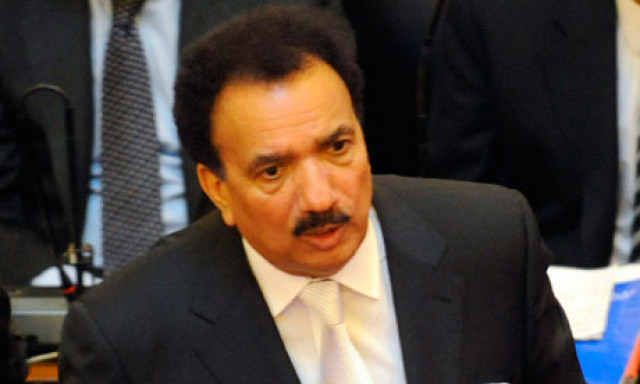Unsatisfactory progress: Newly crafted anti-terror strategy ‘going nowhere’
Interior ministry officials brief senate body about National Action Plan

PHOTO: AFP
The national action plan (NAP) against terrorism is not working apparently. Five months after announcing the revised anti-terror policy, the government has admitted the elaborate plan is going nowhere.
While briefing a panel of the upper house of parliament on Thursday, officials of the interior ministry admitted the much-hyped plan was losing its significance and progress on it had been far from satisfactory.

“Performance [on NAP] is unsatisfactory. It’s true [that progress on some key issues is slow or not satisfactory]. NAP is complicated. It is a difficult and multifaceted task,” observed Shahid Khan, the interior secretary.
He was briefing the Senate Standing Committee on Interior over progress on NAP, which, according to him, covered steps against multiple herculean tasks like sectarian strife, proscribed organisations, madrasa reforms, terror financing, chocking foreign funding to seminaries, hate literature and armed militias.
The interior secretary, who was accompanied by Minister of State for Interior Balighur Rehman and other senior ministry officials, observed that these challenges were a major stumbling block.
Muttahida Qaumi Movement’s Tahir Mashhadi questioned where the federal government was as foreign funding to seminaries continued, members of proscribed outfits roamed freely and sectarian strife continued to pose a serious threat to the state. “Who is filling the vacuum?” he asked.

Joining the conversation, Awami National Party’s Shahi Syed said that law enforcement agencies had arrested tens of thousands of people but the desired results had yet to be achieved.
Hamid Ali Khan, the national coordinator of the Nation Counterterrorism Authority (Nacta), told the Senate panel that under NAP, around 49,000 suspects had been arrested in crackdowns against militants after the Peshawar school massacre. The government has also enlisted the names of 1,135 people involved in sectarian rifts while 137 executions have been carried out so far since the moratorium on death penalty was lifted, he added.
Around 3,445 activists affiliated with the Tehreek-e-Taliban Pakistan (TTP) have been identified while another 129 arrested and 332 declared proclaimed offenders. Around 10, 224 weapons were confiscated in Punjab, 260,034 in Khyber-Pakhtunkhwa while three bomb factories were destroyed in Sindh.
The Nacta official said that around Rs2.1 billion were frozen in various accounts believed to be used for financing terror and money laundering while 230 people were arrested. Another 124 accounts with Rs1.008 billion have been frozen for suspicions on ownership by proscribed organisations since 1991.
Interior secretary Khan told the lawmakers that 69 cases had been referred to nine military courts, which would resume proceedings after the apex court decides about their legality.
Appeal to hand over TTP Chief
The meeting was chaired by Rehman Malik, who requested Afghanistan to hand over TTP chief Mullah Fazlullah to Pakistan. “Please hand over the chief killer of Pakistanis (Mullah Fazlullah) to us,” appealed the Senate Standing Committee on Interior chairman.
The committee members also asked the government to take up the issue of the involvement of foreign hostile agencies in Pakistan’s affairs.
Published in The Express Tribune, May 29th, 2015.



















COMMENTS
Comments are moderated and generally will be posted if they are on-topic and not abusive.
For more information, please see our Comments FAQ